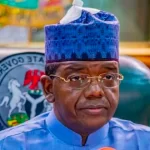
Nigeria’s Minister of Education, Professor Tahir Mamman, has established an eight-member committee to steer the educational roadmap for the nation.
Prof. Mamman made this disclosure during the committee’s inauguration in Abuja on Tuesday, the News Agency of Nigeria revealed.
He outlined a four-week timeframe for them to devise plans that could revolutionise the education sector and emphasized the necessity to initiate this national mission with a well-defined path to bring about a positive transformation in the country’s fortunes.
Describing the event as a pivotal moment in the nation’s pursuit of educational excellence and societal development, Prof. Mamman stressed the urgency of their mission and the need for clear guidance to uplift Nigeria’s prospects.
The minister acknowledged the challenging journey ahead and highlighted the anticipation among Nigerians for swift improvements across all sectors under President Bola Tinubu’s administration, with education serving as a cornerstone for positive change.
Prof. Mamman underscored President Tinubu’s vision for his administration, which centres on enhancing the lives of Nigerians.
In his words, “I must confess that your assignment is not going to be an easy one because Nigerians are looking forward to the administration of President Bola Tinubu GCFR to do a quick turn-around in all sectors of the economy.
“Education is the fulcrum to galvanize the needed changes to make Nigeria hold her own in the comity of nations.
“The president has laid out his vision for his administration and it is anchored on improving the lives of Nigerians in a manner that not just reflects our humanity but encourages compassion towards one another and duly rewards our collective efforts to resolve the social ills that seek to divide us.”
The minister disclosed President Tinubu’s commitment to provide 10.5 million Nigerian out-of-school children with valuable skills.
Prof. Mamman highlighted the need for a clear roadmap and framework towards achieving the ambitious goals in the educational sector.
He also urged the 8-man committee to embrace technology and aim to achieve a digital future where education responds to the demands of society.
He said: “As Nigeria looks towards having quality education, it is important that the curriculum, from basic to tertiary level, meets the demands of our times and needs of the society.
“I am happy to note that work has commenced at some levels, especially the secondary and tertiary levels. What we need to know is to what extent can what we already have met contemporary demands of education globally and if not sufficient, how to address them.
“ I do expect that issues of Financial Autonomy in tertiary institutions, access and equity, research and innovation as well as the government-industry-academic nexus, would occupy your thoughts.
“In the same vein, the global competitiveness of our educational system should not escape your scrutiny.
“One thing I must not fail to add is that we must have an education system that embraces technology and moves into a digital future where our education responds to the demands of society,” he said.
The committee comprises Dr Nuhu Yakubu as Chairman while Prof. Ernest Ojukwu, Prof. Sa’ad Umar, Shulamite Paul, Dr Garba Ibrahim, Prof. Ismail Junaidu, Hajia Hindatu Abdullahi and Mr. Joseph Achede are members.










